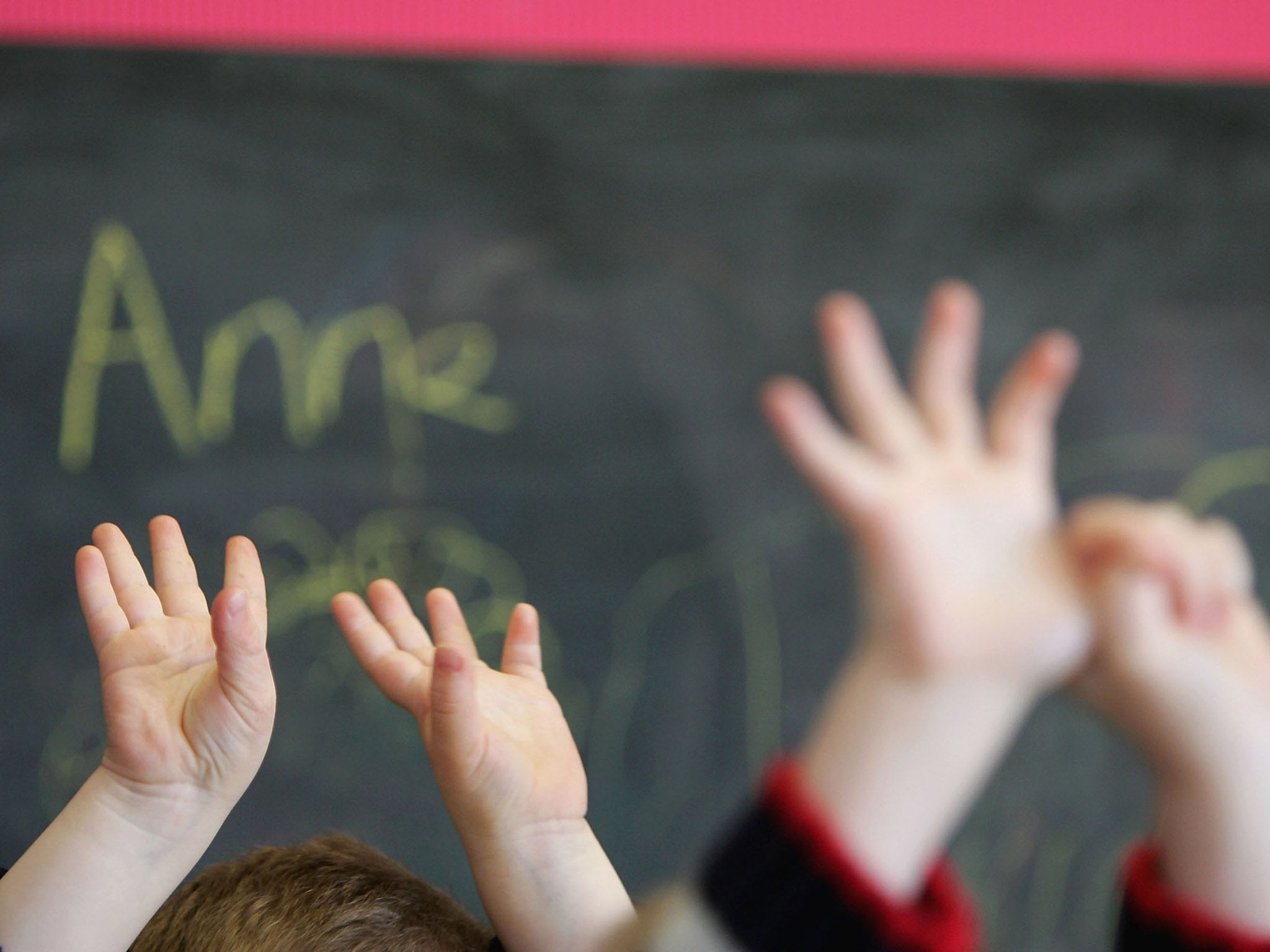Parents to receive advice on teaching nursery rhymes in bid to close disadvantaged children's word gap
Follows recent report that nearly half of primary school children are at risk of underperforming because of limited vocabulary

Parents are to be given advice on how to sing nursery rhymes, teach the alphabet and a range of other activities they can do with children before they start school, in a bid to close the gap in skills between disadvantaged pupils and their peers.
The Department for Education (DfE) has launched two programmes worth £13.5m to give families extra support to help boost preschool children’s language and communication skills at home.
It comes after a recent Oxford University Press report found that nearly half of five and six-year-olds are at risk of underperforming academically because they have a limited vocabulary.
The first initiative, backed by £5m in funding, will trial projects that provide advice to parents on how to help their child learn new words through reading, learning the alphabet and nursery rhymes.
The second is an £8.5m scheme for local councils that will fund projects which improve early language and literacy skills among the most disadvantaged youngsters.
The measures will help to close the “word gap” – a gap in communication and vocabulary skills – between rich and poor youngsters when they start school, according to the DfE.
Damian Hinds, the education secretary, said: “It is important that parents and families can feel confident about supporting their children so they can start school with the appropriate level of language and social skills.
“This new support will help parents with early language learning at home by giving them practical advice on activities like reading and learning the alphabet which are so important in making sure no child is left behind.”
Sir Kevan Collins, chief executive of the Education Endowment Foundation (EEF), which will run the £5m scheme, said: “Parents care very much about the future of their children, whatever their background or wherever they come from.
“But it can sometimes be difficult to get them involved in their child’s learning and we know little about how to do this well.
“By testing different ways of tackling issues like the early years ‘word gap’, this new fund will give us much-needed information about how we can give parents the tools they need to give their child the very best start in life.”
Join our commenting forum
Join thought-provoking conversations, follow other Independent readers and see their replies
Comments
Bookmark popover
Removed from bookmarks